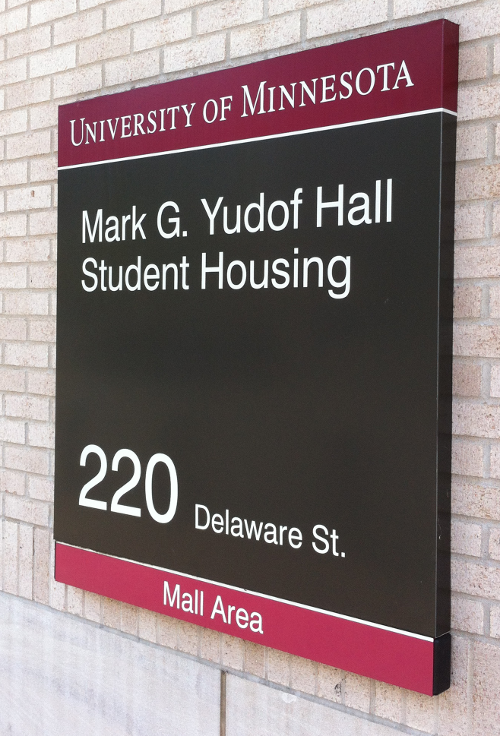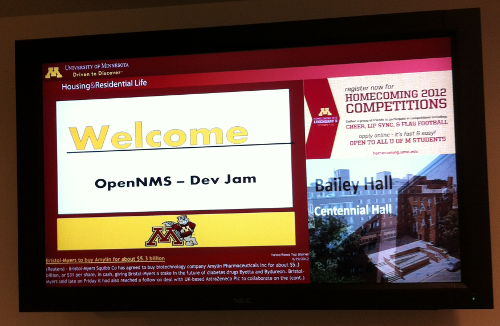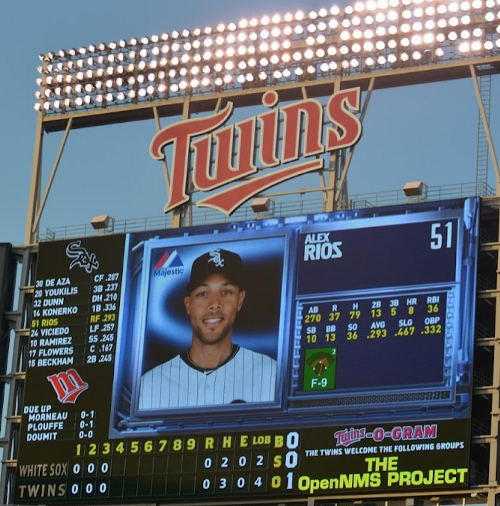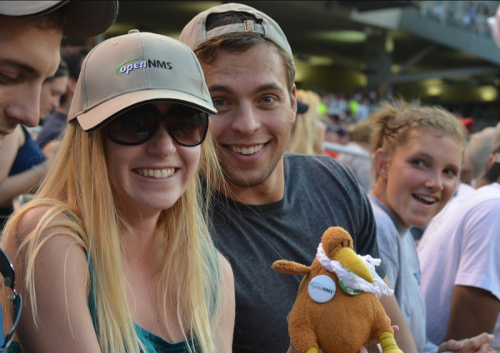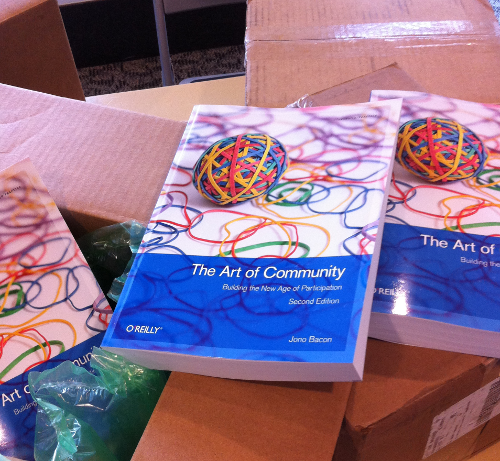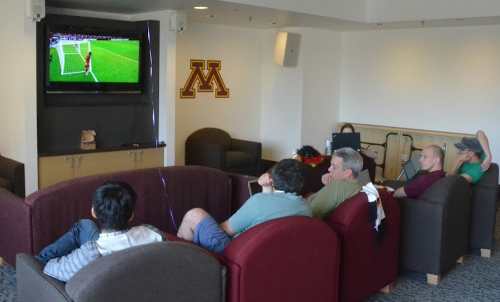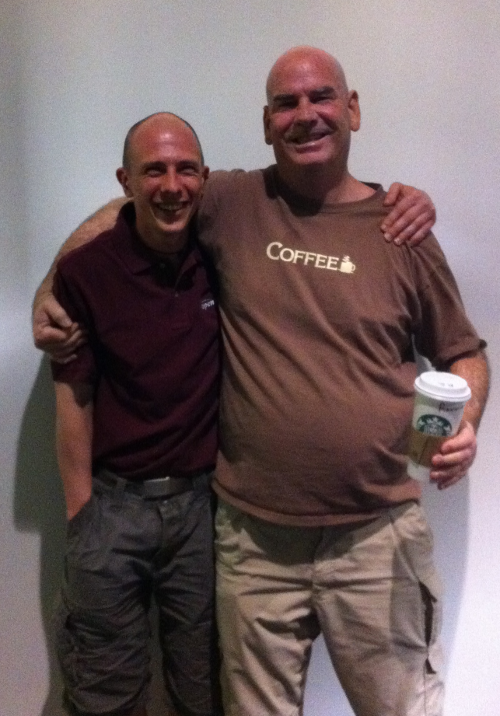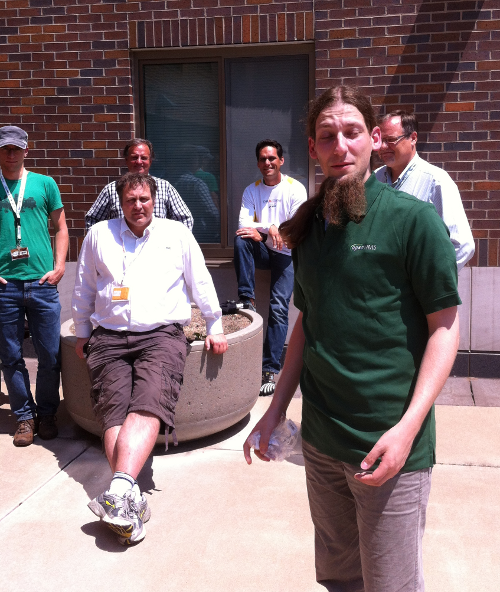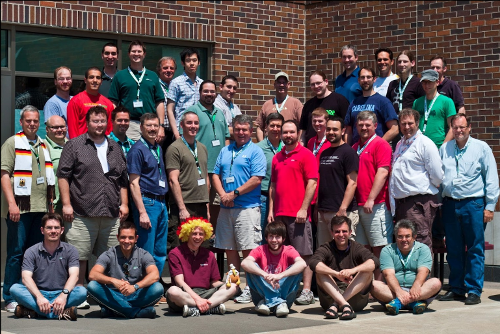Okay, no OpenNMS or open source content today, but since most free software geeks also like fantasy and science fiction literature I figure this might be of interest to the three people who read this blog.
One of the highest honors a writer of this genre can receive is a Hugo Award. They are given out every year by the World Science Fiction Society at their annual convention. This year I learned that anyone attending the convention can vote for the Hugo Award winners. I thought it was something like the Academy Awards where only other people in the business could vote. I was wrong. Better yet, I learned that by becoming a supporting member, anyone can vote even without attending the convention.
How great is that?
This is important to me, since a friend of mine, Ursula Vernon, has had her graphic novel series Digger nominated in the “Best Graphic Story” category. I think it would be awesome if someone who lives in Pittsboro, North Carolina, won a Hugo Award. Plus, her work is pretty fantastic on its own. And if Patrick Rothfuss can pimp out his editor, I can pimp out my friend.
Before I lose more readers with another “TL;DR” post, I just want to encourage anyone with a love of science fiction and fantasy to sign up as a supporting member and to vote. It’s US$50, but you get digital copies of most of the nominated work (DRM-free, and no, don’t ask me for a copy). If you bought just the “Best Novel” nominees it would be way more than fifty bucks, and you get exposed to amazing shorter work that rarely finds a market.
I always like to be an informed voter, so I am making a dedicated effort to read all of the nominees. Well, except for “Best Graphic Story” since my mind’s made up on that one. (Well, and Betsy Wollheim for “Best Editor – Long Form” since I trust Patrick’s judgement)
Digger is about a wombat. Wombats are marsupials native to Australia that dig extensive tunnel systems. The story starts out with our heroine digging (as wombats are wont to do) but she gets lost and emerges in a world both like and unlike her own. In an attempt to find her way back home, she enlists the help of a talking statue of the god Ganesh, unintentionally partners with a childlike shadow being (who gets her out of a couple of tight places involving hyenas) and listens to the prophecies of an oracular slug.
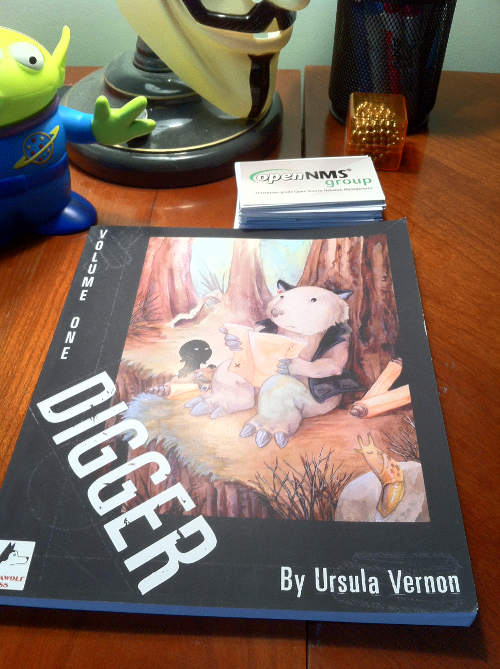
Cool huh?
The comics are available online, but I plan to buy the printed volumes. I am rationing them, one a month (I just ordered Volume 2 from Amazon). Check them out and then remember to vote! I also want to point out that the other nominees involve teams of people – Ursula both writes and illustrates her work – so that should be worth some extra consideration.
As far as the other Hugo Award categories, I’m working my way through the “Best Novel” nominees. The one to beat will be George R.R. Martin’s A Dance with Dragons which is the fifth book in the Song of Fire and Ice (Game of Thrones) series. I pre-ordered this and read it the day it came out and I wasn’t disappointed, so while it is a bit cliché it has my vote at the moment.
I just finished Embassytown by China Miéville last night. I enjoyed Kraken, but didn’t like this one as much. It starts off a lot like Stephenson’s Anathem, with a lot of linguistics that don’t make a lot of sense until you just plow through it for fifty pages or so. Unlike Anathem it is much more a book focused on the link between language and thought. Like pizza, when Miéville is good he’s really good and when he’s bad he’s still pretty good, I did enjoy the book and read the second half pretty much in one sitting, but if I am honest with myself I didn’t enjoy it nearly as much as A Dance with Dragons.
Tonight I start Leviathan Wakes by James S. A. Corey. I’ve never read anything by him but perhaps since he has two middle initials he can give Martin a run for the money. (grin)
UPDATE: Leviathan Wakes is awesome. At the moment it is my choice for the Hugo Award. I read it as non-stop as I could.
In part it was due to the writing style. “James S. A. Corey” is the pen name of a pair of authors, one who worked for George R. R. Martin. There is Martin DNA all over this book. It starts off with a rather brutal and shocking scene, but then they don’t return to it for several hundred pages. Every chapter is written from the point of view of one of the two main characters (although in third person) and most end in cliff hangers which makes you want to read the next one.
I ordered Caliban’s War, the second book in the series, halfway through this one.
Although this may make me sound a little like Harlan Ellison who, in his dotage, seems to be claiming to have written every science fiction story, I find myself making comparisons between any modern space opera that involves genetic mutation with Donaldson’s Gap series, Leviathan brings enough uniqueness and style to the genre that I’m certain I’ll devour the series.
